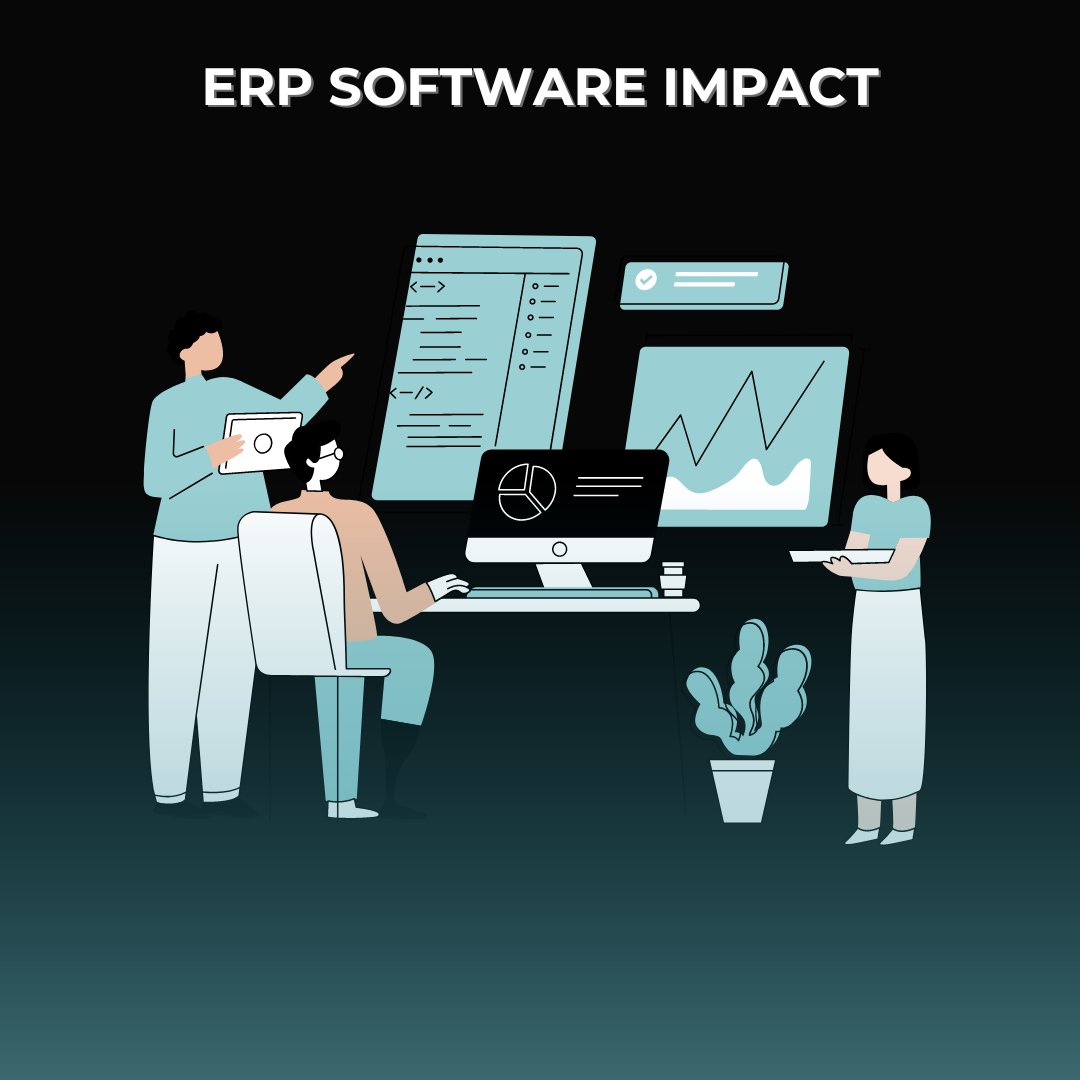The Impact Of ERP Software On Financial Reporting And Analysis.

Table of Contents
Introduction
In today’s rapidly evolving business landscape, organizations face the challenge of managing vast amounts of financial data efficiently and deriving actionable insights for strategic decision-making. Enterprise Resource Planning (ERP) software has emerged as a powerful solution that significantly impacts financial reporting and analysis processes. This article explores how ERP software revolutionizes financial reporting and analysis, empowering businesses to make informed decisions based on real-time and accurate financial data.
The Evolution Of Financial Reporting And Analysis
Historically, financial reporting and analysis were labour-intensive tasks, relying heavily on manual data entry, spreadsheet-based calculations, and disparate systems. These traditional approaches were time-consuming, prone to errors, and hindered by data silos that limited data visibility and collaboration.
The advent of ERP software Oman transformed the financial reporting and analysis landscape by introducing a centralized platform for collecting, integrating, and processing financial data. With ERP’s automation capabilities, organizations experience improved data accuracy, streamlined processes, and faster insights.
Streamlining Financial Data Collection And Integration
ERP software’s central database eliminates data fragmentation and ensures real-time updates across all modules, enabling seamless data integration. Finance teams can now automate data collection from various departments, such as sales, inventory, and procurement, reducing manual effort and potential errors.
Automation extends to data entry and reconciliation processes, enabling faster and more efficient financial transactions. This streamlining of financial data collection and integration enables organizations to generate reports at the click of a button, saving time and resources.
Enhanced Data Visualization And Reporting
One of the most significant impacts of ERP software on financial reporting and analysis is the ability to create interactive and visually appealing financial reports. ERP systems provide customizable dashboards and data visualization tools that present complex financial data in a user-friendly format.
Financial professionals can access real-time financial information, trends, and performance indicators through interactive charts and graphs. These dynamic reports empower decision-makers to grasp financial insights quickly, identify trends, and respond to challenges promptly.
Leveraging Advanced Analytics And Predictive Modeling
ERP software has evolved to incorporate advanced analytics and predictive modelling capabilities, integrating artificial intelligence (AI) and machine learning algorithms. These functionalities go beyond basic financial reporting and enable organizations to conduct predictive financial analysis.
Through predictive modelling, ERP systems forecast future financial trends, anticipate potential risks, and support strategic planning. This data-driven approach empowers organizations to make informed decisions, adapt to changing market conditions, and seize opportunities proactively.
Ensuring Compliance And Regulatory Reporting
Compliance with financial regulations is a critical aspect of financial reporting and analysis. ERP software is vital in automating compliance procedures and ensuring accurate regulatory reporting.
ERP systems maintain detailed transaction records and audit trails, simplifying compliance audits. Organizations reduce the risk of non-compliance and potential penalties by automating compliance workflows and enhancing financial governance.
Improving Financial Planning And Budgeting
Effective financial planning and budgeting are essential for business success. ERP software facilitates efficient budget creation, allocation, and monitoring. Organizations can align their budgets with business objectives and evaluate budget performance and variances in real time.
Through ERP-based budgeting and forecasting, financial professionals gain better control over their financial resources, optimize spending, and drive profitability.
Facilitating Auditing And Internal Controls
ERP software enhances internal controls and risk management by providing comprehensive audit trails and transaction histories. Financial professionals can monitor economic activities in real time, detect anomalies promptly, and implement corrective actions.
Automated internal controls reduce the risk of financial fraud and errors, ensuring data integrity and fostering a culture of accountability within the organization.
Case Studies: Success Stories Of ERP Software In Financial Reporting
Company A: Accelerating Financial Insights With ERP Analytics
Company A, a global manufacturing conglomerate, faced challenges consolidating financial data from its numerous subsidiaries. After implementing an ERP system with advanced analytics capabilities, Company A achieved real-time insights into financial performance across all business units. The ERP’s predictive analytics empowered Company A’s economic team to anticipate market trends, optimize working capital, and identify cost-saving opportunities, resulting in improved profitability and competitive advantage.
Company B: Achieving Compliance Excellence With ERP Software
Company B, a pharmaceutical company, had stringent compliance requirements imposed by regulatory bodies. Company B automated its compliance procedures by adopting an ERP system tailored to the pharmaceutical industry, from data recording to regulatory reporting. This streamlined compliance management enhanced data accuracy and ensured timely submissions, leading to smooth audits and mitigating compliance risks.
Company C: Optimizing Budgeting And Forecasting Processes
Company C, a multinational retail chain, struggled with complex budgeting processes and budget variances. With ERP software’s integrated budgeting and forecasting module, Company C gained better control over its financial planning. The ERP system provided real-time budget updates, enabling finance managers to identify discrepancies quickly and adjust spending accordingly. This resulted in improved financial performance and increased operational efficiency.
Challenges And Considerations In Implementing ERP For Financial Reporting.
While ERP software offers transformative benefits for financial reporting and analysis, its successful implementation requires careful consideration. Challenges such as data migration, system integration, data security, and user training should be addressed to ensure a seamless transition.
Organizations must invest in comprehensive user training programs to help employees adapt to the new system and utilize its features optimally. Change management strategies are crucial to ensure smooth adoption and alignment with business objectives.
Future Trends In ERP Software For Financial Reporting And Analysis
The future of ERP software for financial reporting and analysis is marked by continued innovation and integration of emerging technologies. Real-time performance monitoring and predictive analytics will become more prevalent, enabling organizations to anticipate market shifts and make data-driven decisions swiftly.
Furthermore, integrating blockchain technology will enhance the security and transparency of financial transactions, fostering trust among stakeholders.
Conclusion
The impact of ERP software on financial reporting and analysis is far-reaching, revolutionizing how organizations manage and leverage financial data. ERP software is crucial in driving informed decision-making, improving financial planning, and ensuring compliance, from streamlining data collection and integration to empowering decision-makers with real-time insights.
As ERP systems continue to evolve, embracing future trends and advancements will be key to unlocking their full potential in shaping the financial landscape of modern businesses. In India, where companies thrive in a competitive market, adopting ERP software has become instrumental in achieving operational excellence. Among the numerous ERP solutions available, ZOrder stands out as the best choice for businesses seeking comprehensive and reliable ERP software in India.
Also read- https://onthewaycomputers.com/pos-billing-software-ecommerce.html




